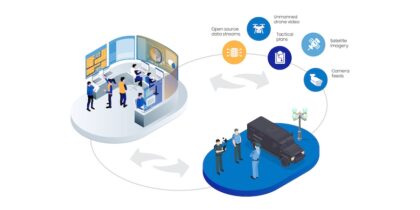There’s a long history of the U.S. Courts relying on paper and using legacy applications that require workers to be at their desk to do their jobs — but that is quickly changing according to Peter Chin, division chief, case management systems office, U.S. Courts.
In the second video of FedScoop TV’s new “Accelerating Innovation in Government” series supported by Samsung, Billy Mitchell, managing editor at FedScoop, speaks with Chin about the agency’s digital transformation priorities and how mobility solutions are changing the way work is done.
For the U.S. Courts, everything revolves around data. In the office, data analytics platforms are driving new levels of capability and insight. In the field, data security and integrity is essential — and potentially life-changing — for parole officers that need to access, share and collect accurate information during interviews. These examples from Chin underscore just how important endpoint security is as more workers become untethered from their desks and complete more work on the go.
Digitize Your Government Agency
Get this guide to drive collaboration, boost productivity and ensure security in the public sector. Download Now
Mobility, according to Chin, is also enabling the U.S. Courts to attract younger generations to the workforce — a trend we’ve seen government-wide. An agency’s ability to recruit fresh talent is becoming critical as a growing number of baby boomers retire from federal service.
As opined by Kevin Curry, senior vice president of Global Public Sector at Infor, in The Hill: “Nothing is more frustrating to millennials than antiquated technology — legacy systems built for a former era. This isn’t just because millennials are digital natives and have evolved with technology over time — they actually need to work with cutting-edge technologies in order to remain competitive in the job market.”
Mobility is already a part of their regular life, and the U.S. Courts are looking to make it easier for millennials to work with them by using open source tools and deploying mobile devices, says Chin.
At the end of the day, it’s all about improving mission outcomes. For Chin, digital transformation and the integration of new technologies like smartphones, smart sensors and virtual reality (VR) are already beginning to enhance workforce productivity, endpoint security, immersive training and more at the U.S. Courts.
Watch more to learn more about U.S. Courts’ digital transformation efforts. Stay tuned to Samsung Insights’ federal government coverage for additional videos from the series.








